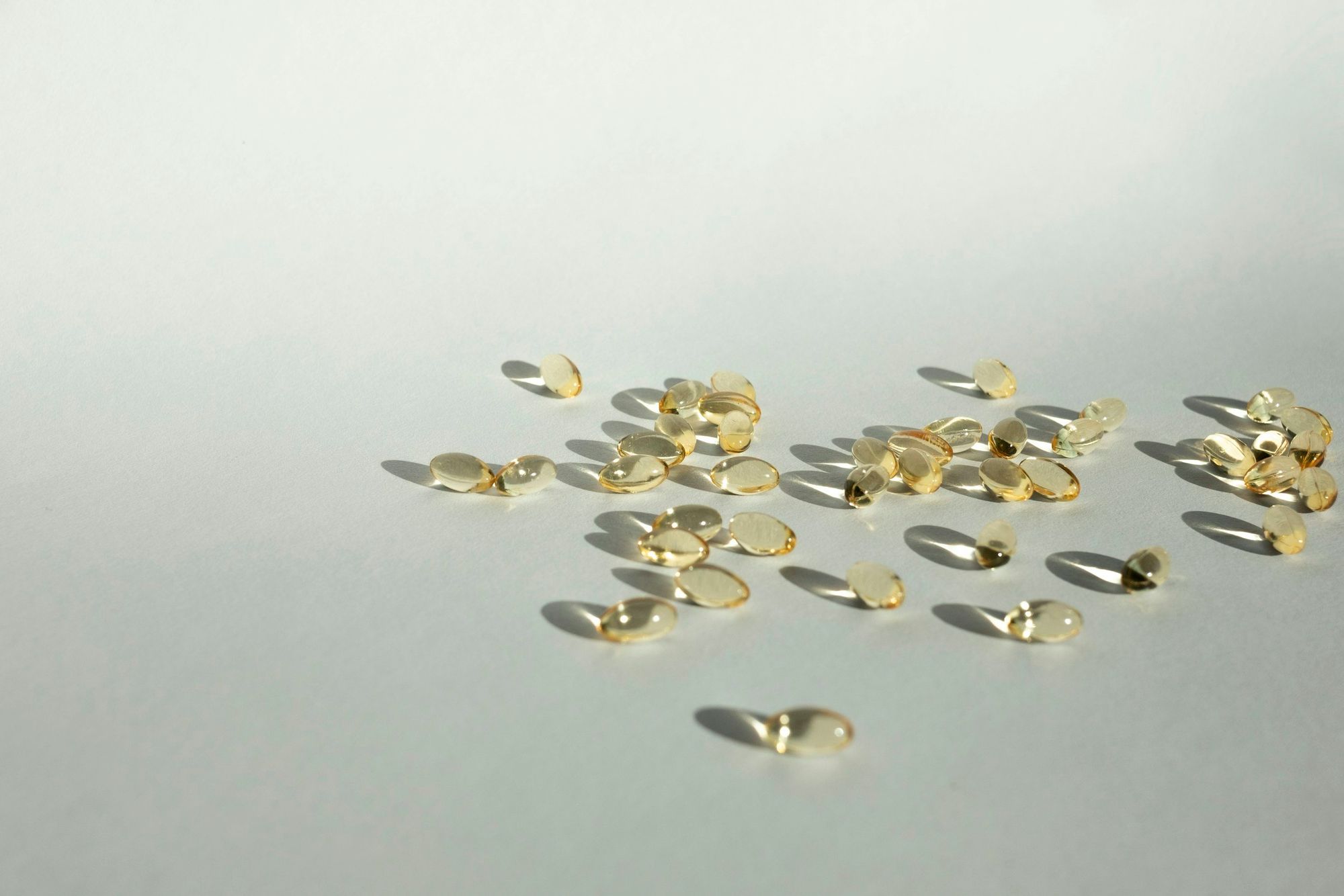
When considering whether to supplement or not to supplement and even what to supplement, it comes down to individual diets and lifestyles, as well as training load and goals. When considering what supplements may be beneficial, it’s important to consider the needs of those who engage in hybrid training.
Hybrid athletes can have high energy, protein and carbohydrate requirements and although a food-first approach should be followed, supplements may be useful to meet these requirements if it is tricky to get enough through their diet alone, for example, if their requirements are incredibly high or if they follow certain dietary patterns. The goals of hybrid athletes may include improving endurance and strength, maintaining and growing muscle mass and prioritising recovery, and certain supplements can help maximise training efforts and support progress. These are not essential and it’s important to recognise that supplements are not a magic pill for anything and should really be seen as the “icing on the cake” meaning that if your sleep, nutrition and training aren’t already on point, a supplement is unlikely to have many notable benefits.
Electrolytes
Hybrid training can involve a high training load as well as some intense training sessions, which can increase the likelihood of becoming dehydrated due to sweat loss. Fluids can also be lost as water vapour when exhaling, which we do more of when exercising (1, 2). Research has shown that losses as little as 2% of body mass through fluid can reduce cognitive performance and alertness (3) as well as impact physical performance (4) by potentially causing digestive issues, early onset fatigue and increasing the perception of effort (5).
Electrolytes are salts and minerals, like potassium and sodium, which are found in our blood and play an essential role in different bodily functions from supporting muscle contractions, regulating fluid levels and transmitting nerve signals (6). Electrolytes are lost through sweat and other bodily fluids and dehydration can lead to electrolyte imbalances which can cause symptoms such as cramps, confusion, headaches and dizziness (7, 8), as well as more severe consequences in extreme cases of dehydration.
What exactly are electrolyte supplements?
Electrolyte supplements can be purchased as sachets, gels, or tablets to add to water to promote hydration and support rehydration. Electrolytes like sodium and potassium are often added to sports drinks, which also provide carbohydrates.
What is the evidence for electrolyte supplements?
A lot of the research around the use of electrolyte supplements considers them in the use of sports drinks, which also provide carbohydrate, making it harder to determine whether the benefits associated are due to the electrolytes, the carbohydrates or the combination of both of them. The International Society for Sports Nutrition suggests that when exercise lasts more than 90 minutes or is of high intensity, carbohydrate-electrolyte solutions i.e. a sports drink can be helpful for maintaining blood sugar levels and supporting glycogen resynthesis as well as preventing dehydration (9). The American college of sports medicine concludes that the need for electrolyte supplements depends on circumstances, with beverages containing electrolytes and carbohydrates providing greater benefits over water in certain conditions (10).
There is limited evidence on whether electrolyte supplements alone can be beneficial for performance and recovery. A recent, but very small, study found that an electrolyte drink providing sodium, potassium and magnesium as well as carbohydrates (similar to that found in commercially available sports drinks) consumed before and after exercise helped participants to retain more water than drinking water alone, meaning it would take them longer to become dehydrated (11). Another small study concluded that when a sports drink and electrolyte solution were consumed during endurance exercise, it resulted in quicker times during a time trial in comparison to normal water (12). They also found that fluid retention was higher with the electrolyte solution in comparison to water, which may have influenced the results of the time trial because it helped to offset the negative effects of dehydration.
Do you need an electrolyte supplement?
For most individuals, fluid and electrolyte losses can be replaced by drinking a comfortable amount of water and having food, particularly salty food, after a workout. Interestingly, milk has been shown to be more effective at replacing fluids in comparison to certain sports drinks (13), which is certainly a more budget-friendly way of rehydrating after a workout! This is potentially due to the carbohydrate content, which can aid sodium and water absorption (14, 15).
Mild dehydration can happen without you realising and you can become dehydrated over successive days of training if you fail to rehydrate adequately. Due to the high training volume often associated with hybrid training, this puts an emphasis on the importance of rehydrating after sessions. Electrolyte supplements can be useful due to their convenience and there are certain situations where an electrolyte supplement may be beneficial such as after intense or long-duration sessions, if you’re training in hot weather or if it is desirable to speed up recovery time for example in multi-day competitions or during an intense training block.
Protein powder
Protein requirements are higher for those who hybrid train, and whilst protein needs can usually be met through a balanced diet, for those who have particularly high protein requirements due to their body composition or training load, or for those who struggle to include sufficient sources of protein in their diet due to dietary preferences or convenience, protein powder can be helpful.
What exactly is protein powder?
Protein powders are essentially powdered forms of protein from different foods. The most common type of protein powder is whey, which is a derivative of milk and is the by-product of the production of cheese or yogurt (remember little miss Muffet with her curds and whey?). You can also get plant-based protein powders such as soya, hemp, pea and rice protein.
What is the evidence for protein powders?
Protein powder can be beneficial for hybrid athletes, with a study highlighting that protein supplementation following a workout enhanced recovery and performance in subsequent sessions for both resistance and endurance training (16). This is likely because in order to stimulate muscle protein synthesis, which is the process where the muscle is built, 20-40g of high-quality protein is required (17), and usually a serving of protein powder can provide this amount.
Although the muscle-building benefits are associated with having adequate protein as opposed to a powder, it was previously suggested that protein powders could be more beneficial than intact protein sources because they are faster to absorb as a liquid than food. It is now evident that intact protein sources such as eggs, whey, soya and whole milk can evoke the same, if not greater, anabolic response (18, 19).
However, the opposite may be true for vegans or those who follow a largely plant-based diet. For vegans, protein can be harder to obtain but also to absorb because a lot of plant-based protein sources are also high in fibre. The American College of Sports Medicine advises that vegan athletes should aim to eat around 10% more protein (20) to account for the fact that plant-based proteins can lead to a lower rate of muscle repair and growth in comparison to the same amount of protein from animal sources (21). Vegan protein powders can be beneficial as they provide an isolated serving of protein which can be more easily absorbed.
Do you need a protein powder?
You do not need a protein powder, and it is completely possible to meet your protein requirements through a balanced diet (even if you’re veggie or vegan!), but including one can be a convenient way of meeting your protein needs.
Creatine
Creatine is a compound made within our body and is found naturally within our muscles. It is considered an amino acid, but it is not used to make protein (22).
The cells in our body use a form of energy known as ATP, and creatine helps to generate more ATP within the muscles. When it comes to exercise, the muscles have a small amount of ATP within them and this is used for explosive movements, such as sprinting, weight-lifting and other high-intensity bouts of exercise- exactly what the hybrid athlete needs!
What exactly are creatine supplements?
Creatine supplements can be purchased as tablets or powders, or may even be added to other supplements such as pre-workout and intra-workout powders.
Creatine supplementation increases the stores of creatine within the muscles which can help to regenerate ATP, which can increase the capacity for high-intensity movements.
What is the evidence for creatine supplements?
The International Society of Sports Nutrition has concluded that creatine supplementation is the most effective nutritional supplement for increasing high-intensity exercise capacity and muscle mass (23).
Creatine has been extensively studied and has benefits beyond those that are sports-related, such as improved cognitive function (24, 25). In relation to sports, creatine can enhance strength improvements, muscle mass growth and also sprint performance. It has also been shown to support exercise recovery, as it can reduce muscle damage (26) and encourage greater glycogen replenishment than just carbohydrates alone (27).
Do you need to take a creatine supplement?
Creatine can be obtained through meat, and so naturally, vegetarians and vegans tend to have lower muscle concentrations of creatine than meat-eaters (28). However, regardless of your dietary preferences, the amount of creatine that could be consumed through food is not sufficient to increase muscle creatine concentrations enough to see the benefits that have been illustrated in studies.
Vegetarians and vegans, in particular, may benefit from taking a creatine supplement, and some studies have suggested that creatine may have a greater effect in non-meat eaters due to the naturally lower baseline levels of creatine, however, studies are mixed on this (29).
The current recommendations for creatine are 3-5g of creatine per day (23). Continuous supplementation can increase the amount of creatine in muscles by 20-40% (23), which can lead to a greater ability to perform at a higher intensity and recover quicker which will support strength, performance and muscle mass gain over time.
Caffeine
Caffeine is a naturally derived stimulant and is commonly associated with coffee, but caffeine is found in many other foods and drinks including tea and chocolate. Whilst it can improve alternes, making it appealing to hybrid athletes, there are other mechanisms in which caffeine can support performance and progression.
What are caffeine supplements?
Caffeine can be obtained through supplements such as pre-workout powders, energy drinks and caffeine tablets.
What is the evidence for creatine?
Caffeine was previously banned by the International Olympic Committee but is now permitted in sport (30) with the International Society of Sports Nutrition considering it to have enough evidence to say that it supports performance and muscle building.
Caffeine has displayed benefits on performance in both endurance and power sports, although the impact of caffeine in increasing strength is mixed. A 2016 study found that caffeine can improve sprint performance but no improvements were observed in strength in upper and lower body exercises (31), and this is consistent with data from older studies (32, 33).
More recent evidence has suggested that caffeine can improve performance and strength through other mechanisms though, such as reducing the perception of pain (34, 35, 36, 37, 38), improving muscle soreness (39, 40), and can ‘spare’ the use of carbohydrate during exercise, which can increase endurance capacity (41, 42).
Do you need a caffeine supplement?
Firstly, a caffeine supplement is not needed as you can obtain caffeine from drinks like coffee, which can be more cost-effective than investing in pre-workout powders or energy drinks.
Secondly, caffeine itself is certainly not needed, especially if you prioritise your pre-workout nutrition so that you have sufficient energy for your sessions and manage sleep and rest well.
If you do choose to supplement with caffeine, it is recommended to take between 3-6mg per kg body weight at least 30 minutes prior to your session (43).
Individual caffeine tolerance varies, and caffeine can have some not-so-nice side effects such as headaches, becoming shaky and increasing anxiety. So, be sure to be aware of your own tolerance levels, and to be conscious of this when experimenting with caffeine supplements.
Omega-3’s
Omega-3 fatty acids are a type of polyunsaturated fatty acids found in oily fish, nuts and seeds and some oils. Omega-3s are associated with many health benefits such as brain development and functioning, heart health and may even improve mental health (44). More recent research has highlighted that omega-3 fatty acids may support performance and recovery too, which is particularly important for those with a high training load like hybrid athletes.
What are omega-3 supplements?
Omega-3 supplements are concentrated forms of omega-3 usually derived from fish oils but vegan ones are also available and are usually made from algae.
What is the evidence for omega-3 supplements?
Omega-3 fatty acids help to regulate inflammation in the body, and studies have highlighted that omega-3 fatty acids can help to promote recovery and reduce muscle soreness (45, 46, 47, 48).
One study found that 3000mg of omega-3 supplements per day reduced muscle stiffness (47), and another study found that omega-3 fatty acids consumed post-exercise resulted in reduced pain 48 hours following exercise (48).
Do you need an omega-3 supplement?
Omega-3s are considered essential, meaning that we must obtain them through our diet or through supplements as our body cannot create them. Those who don’t consume oily fish regularly may benefit from a supplement because although there are plant-based sources of omega-3’s, the type available in plant foods needs to be converted within the body before it can be used for the benefits associated with omega-3’s, like improving cholesterol levels, enhancing brain function and reducing inflammation. Our body is not very efficient at this process unfortunately, which means only a very small amount of EPA or DHA is gained through this conversion.
This is why it is encouraged to consume oily fish in our diets at least once per week, as the omega-3 fatty acid contained in oily fish is EPA and DHA. Fish can be expensive, and a lot of people don’t eat it due to taste or dietary preferences, so supplements can be a good alternative.
Whilst there are no set recommendations for the amount of omega-3s to take as a supplement, a recent review concluded that omega-3’s are safe in amounts up to 5g per day (49), and given the health benefits associated, it may be beneficial to take a supplement daily.
Conclusions
According to the International Society of Sports Nutrition, creatine, protein powder and caffeine are considered to have sufficient evidence to say that they support performance and muscle building. This doesn’t mean that other supplements may not be beneficial for some people, but it will depend on the context of your diet, training, goals and lifestyle. For tailored recommendations on what supplements to take, speak to a registered sports dietitian or nutritionist.
The supplement industry is regulated very differently from the medicine industry. Supplements are typically regulated as “foodstuffs” and, therefore, do not undergo the same checks for safety and efficacy that medicines do. Therefore, it is recommended that you choose supplements with the Informed Sports label, which certifies that the product has been batch-tested and is considered safe for consumption.



